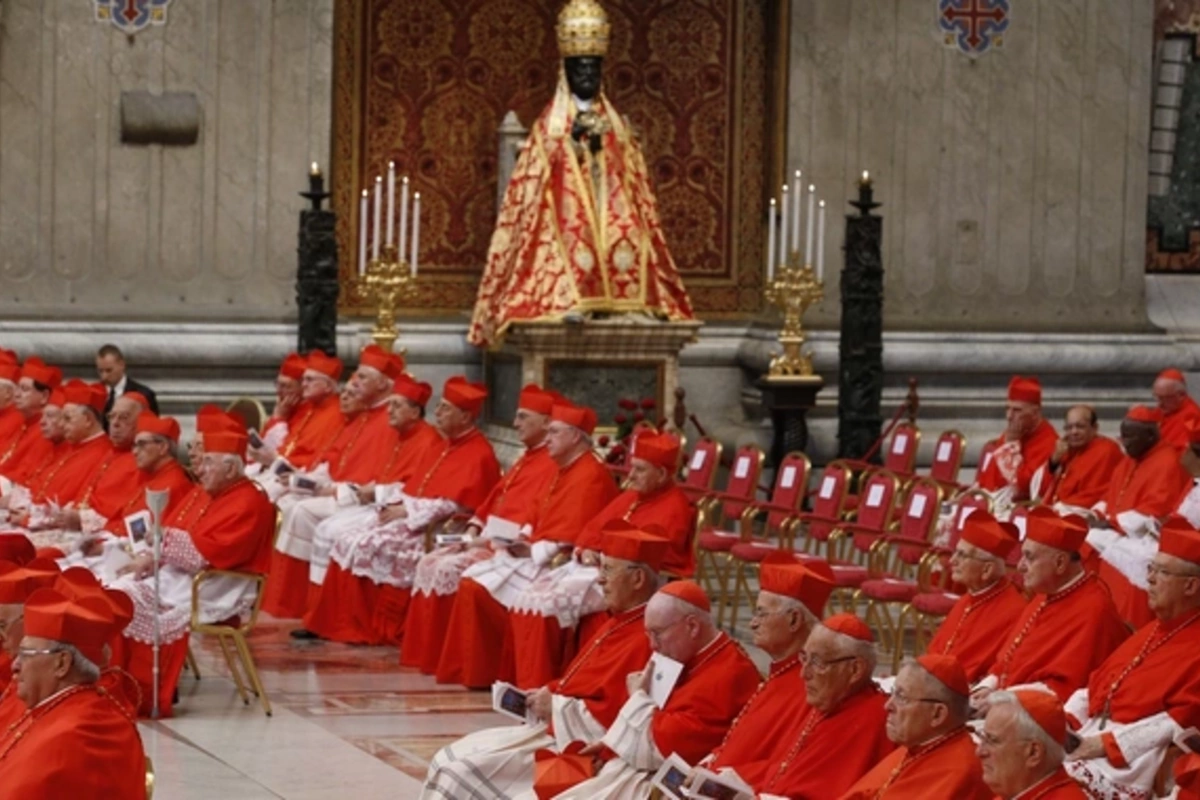07 May , 09:59 2025
2

In the Vatican, a mysterious conclave has begun: 130 cardinals have started the election of a new Pope
This is reported by "Interfax".
Today in the Vatican, one of the world's most enigmatic ceremonies began – the conclave to elect a new head of the Roman Catholic Church. The first day is filled with rituals: the dean of the College of Cardinals, Giovanni Battista Re, celebrated a special mass, after which the cardinals proceeded in a solemn procession to the famous Sistine Chapel. By tradition, only one round of voting is held on the first day, and in subsequent days – four daily: two in the morning and two at noon.
The process is led by the Camerlengo of the Roman Catholic Church, Cardinal Kevin Farrell.
The entire Catholic world is holding its breath waiting for a signal from the chimney of the Sistine Chapel. Black smoke will mean that the pontiff has not yet been elected, while white smoke will announce the appearance of a new Pope. The smoke is formed by burning ballots, and for clarity of the signal, special chemicals are used to enhance the color. When a new pontiff is elected, the Vatican bells will additionally ring.
The election of a Pope on the first day is considered unlikely. To win, a candidate must receive two-thirds of the votes plus one – 89 out of 133 possible. Only cardinals younger than 80 years have the right to vote: 52 from Europe, 23 from Asia, 20 from North America, 17 from South America, 17 from Africa, and 4 from Oceania. Notably, 108 of them were elevated to the rank of cardinal by Pope Francis.
If after three days of voting a new Pope is not elected, the process will be suspended for a day for prayers and reflection. This pause will be repeated after every 7 rounds. If there is no result within 12 days, only the two leading cardinals will remain in the final round.
Conclaves of recent decades have been relatively short – the elections of Francis in 2013, Benedict XVI in 2005, and John Paul II in 1978 took only two to three days. However, history knows a record conclave that lasted almost three years – from 1268 to 1271.
Formally, any male Catholic can become Pope, although since 1378, only cardinals have been elected. Cardinals over 80 years old, who do not have the right to vote, can nevertheless be elected.
There is no official list of candidates, but Western media name the most likely contenders: progressive cardinals Matteo Zuppi (Italy) and Luis Antonio Tagle (Philippines), conservative Hungarian Peter Erdő, as well as Italian Pietro Parolin and Fridolin Ambongo Besungu from the Democratic Republic of Congo, who combine different approaches to church issues.
Among other possible candidates mentioned are Italian Pierbattista Pizzaballa, Ghanaian Peter Turkson, Frenchman Jean-Marc Aveline, Swede Anders Arborelius, American Joseph Tobin, Portuguese José Tolentino Mendonça, Spaniard Cristóbal López Romero, and others.
The conclave is an ancient tradition, the name of which comes from the Italian "con clave" ("with a key"), reflecting the strict isolation of cardinals during the election. Between voting sessions, they are accommodated in the guest House of Saint Martha, the former residence of Pope Francis. Interestingly, this year there are more cardinals eligible to vote than rooms in the guest house, so some may be accommodated elsewhere.
The procedure for electing the pontiff is shrouded